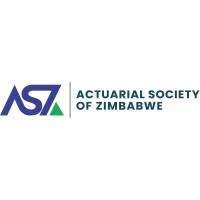Gazetting of the US$-indexed minimum capital requirements advanced: IPEC
Staff Writer
The Insurance and Pensions Commission (Ipec) says the gazetting of the US$-indexed minimum capital requirements for short-term insurers is at an advanced stage, hence all players are expected to assess their current capital positions.
The government last year finalised regulations for the new solvency regime for the insurance sector called the Zimbabwe Integrated Capital and Risk Programme (ZICARP) framework.
The programme sets minimum capital requirements for insurance companies proportionate to the level of risk in order to enhance the financial stability of the insurance sector.
ZICARP also aims to improve the safety and soundness of the country’s insurance companies in a bid to enhance protection for policyholders.
“All industry players are expected to assess their current capital positions against the envisaged new requirements to ensure compliance once the regulations are gazetted.
“Further, the industry players are encouraged to measure their capital positions against the risk-based solvency regime under the ZICARP framework,” Ipec said in the short-term insurance industry report for the year ended December 31, 2023.
During the year under review, of the 20 short-term insurers, 19 reported capital positions above the minimum capital requirement of $37,5 million.
However, motor and fire insurance continue to dominate business for short-term insurers as the industry’s foreign currency-denominated revenues now dominate total revenues.
Industry’s consolidated sector revenue for the year amounted to $768,10 billion and US$235,44 million in US dollar terms.
Direct short-term underwriters absolute foreign-currency denominated insurance revenue amounting to US$174,80 million, constituting 74 percent of the total insurance revenue, with the remaining 26 percent being absolute ZW$ business.
“In line with trends in the Zimbabwe dollar-denominated business, the major sources of foreign-currency-denominated business for direct short-term insurers were motor and fire, contributing a combined 57 percent of the total insurance revenue.
“Motor insurance alone accounted for 34 percent of the total insurance revenue, and foreign-currency-denominated motor insurance is mainly driven by comprehensive cover as policyholders seek to preserve value,” reads the Ipec report.
According to the report, in terms of industry asset quality, as of December 31, 2023, the short-term insurers reported total assets amounting to $1,38 trillion in nominal terms.
Insurance contract assets and investment property were the two major asset classes, accounting for 37 percent of total assets.
Investment property alone constituted 17 percent, against a limit of 10 percent as stipulated in the IPEC Investment Guidelines issued in terms of Circular 2 of 2013.
Premium debtors constituted 5 percent of the total assets, having decreased by 26 percent in nominal terms from $91,04 billion in September 2023 to $67,48 billion in December 2023.
“The operationalisation of No Premium, No Cover has been effective in reducing industry premium debtors,” Ipec said.
The industry’s total prescribed assets by the short-term insurers amounted to $71,93 billion, translating to 5,23 percent average compliance level.
According to the report, nine out of the 20 insurers were compliant with the minimum prescribed asset ratio of 10 percent.
The prescribed assets are mainly composed of Treasury bills, corporate bonds, and equities. However, Ipec said the low uptake of prescribed assets is due to the investment vehicles’ exposure to inflation and lack of value preservation.
“The Commission continues to engage non-compliant entities with prescribed asset ratios below the minimum threshold,” reads the report.













